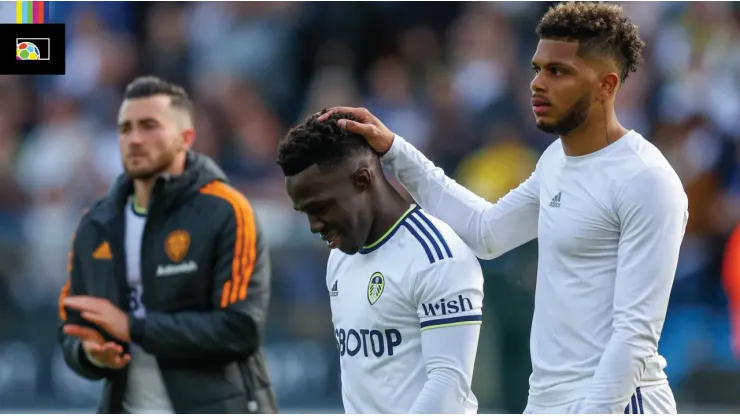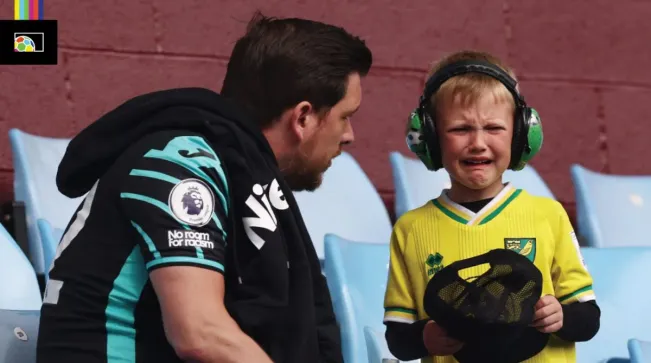
Relegation. A word that sparks thoughts of anguish and doom in the minds of soccer fans, players, executives, and owners everywhere. But what actually happens when a club is relegated?
So you’ve been relegated: a guide to what happens next
In leagues that utilize the mechanism of promotion and relegation, which is most soccer setups around the world, clubs shift between the divisions each season.
Depending on the specific league, you might have to finish dead last to be sent down. In others, like the Premier League, multiple teams at the bottom are relegated. Germany uses a playoff system that pits one of the bottom clubs against one of the top teams in the lower tier, with the last spot in the upper division on the line. Every so often a club is relegated as a penalty for breaking rules.
However your club ends up getting relegated, it means being sent down a level.
The initial emotional hit can be devastating. Fans and players are in tears, mentally drained from a long season, and now you’re kicked out of the league.
But from a pure logistics standpoint, in most countries, it affects things very little. The club doesn’t go away. You’ll play a similar number of matches, compete in domestic cups, and even see some of the same opponents throughout the season.
But it can also mean smaller crowds, different travel requirements, selling popular players, and less interest in general in the team.
The silver lining to relegation
The idea being promotion and relegation is that teams are sorted together with other similarly skilled clubs.
So, in theory, a very bad Premier League team might be a pretty decent, even very good, Championship side.
Yes, you don’t have the prestige of being in the top tier, but there are decent odds your team will now be winning a heck of a lot more. Instead of fighting for survival at the bottom of the standings, you can be challenging for a title near the top. And that’s a lot more fun to be a part of.
However, there is a harsh reality that comes with it.
The business side of relegation
Modern professional soccer is a BIG business. And the sponsorship and media rights money that pours into the top leagues is massive each season. That money is shared between the different clubs.
The flip side is that running one of these clubs and winning to stay in a lucrative division can be very expensive.
Getting relegated hits teams with a sudden and substantial loss of revenue. Clubs are also often saddled with a high wage bill relative to other clubs in a given division.
To combat this financial strain on clubs, revenue-sharing schemes are sometimes set up to help relegated and lower-division clubs.
In the Premier League, these are called “parachute payments” and “solidarity payments”. For two seasons after suffering relegation, a club is entitled to a percentage of what the normal base per-team Premier League TV payout. would be. These are parachute payments and help offset the loss of revenue by being in a lower league. For example, West Bromwich Albion received an estimated £44.4 million payment in 2021-2022.
However, to promote fair play for the other teams already in that division, solidarity payments are also made across the board to all lower-tier teams. As of 2018-19, EFL Championship sides each received about £4.65 million in solidarity payments. Lower leagues receive smaller percentage payments as well.
True disaster
Sadly, relegation can sometimes compound an already dire situation at a club. A snowball effect can occur with mounting losses both on and off the pitch. Owners can wash their hands of a losing effort and leave a club without financial backing. This can lead to teams going bankrupt, and sometimes needing to be re-started from scratch, like Parma or Rangers. In the worst case, a club might disappear entirely forever.
Thankfully, this is relatively uncommon and relegation is simply a part of the game (an undesirable one) for most clubs. Soccer fans are a resilient bunch, and the dread of relegation can be quickly replaced by the hope of promotion and better days ahead.
Photos: Imago
200+ Channels With Sports & News
- Starting price: $33/mo. for fubo Latino Package
- Watch Premier League, Liga MX & Copa Libertadores
The New Home of MLS
- Price: $14.99/mo. for MLS Season Pass
- Watch every MLS game including playoffs & Leagues Cup
Many Sports & ESPN Originals
- Price: $10.99/mo. (or get ESPN+, Hulu & Disney+ for $14.99/mo.)
- Features Bundesliga, LaLiga, NWSL, & USL
2,000+ soccer games per year
- Price: $7.99/mo
- Features Champions League, Serie A, Europa League & EFL
175 Premier League Games & PL TV
- Starting price: $7.99/mo. for Peacock Premium
- Watch 175 exclusive EPL games per season






